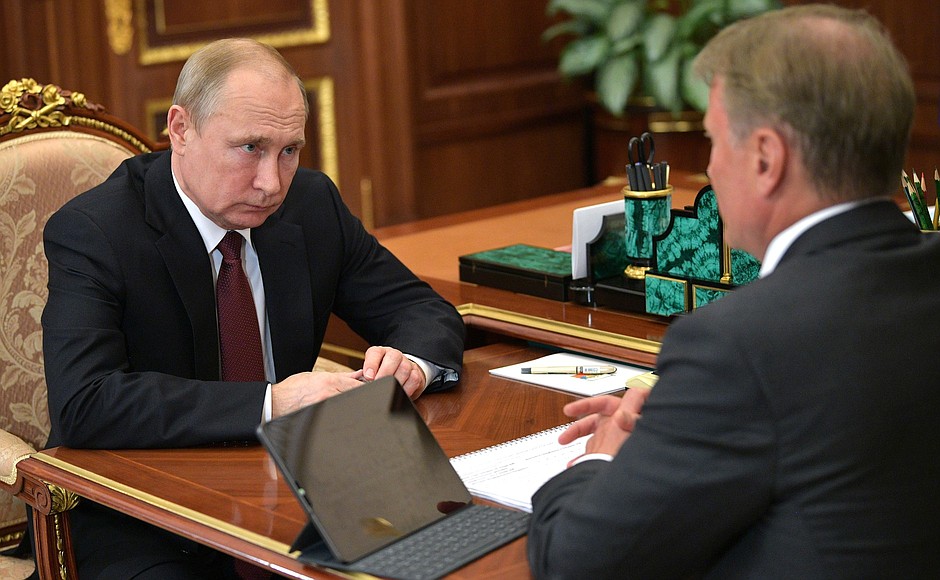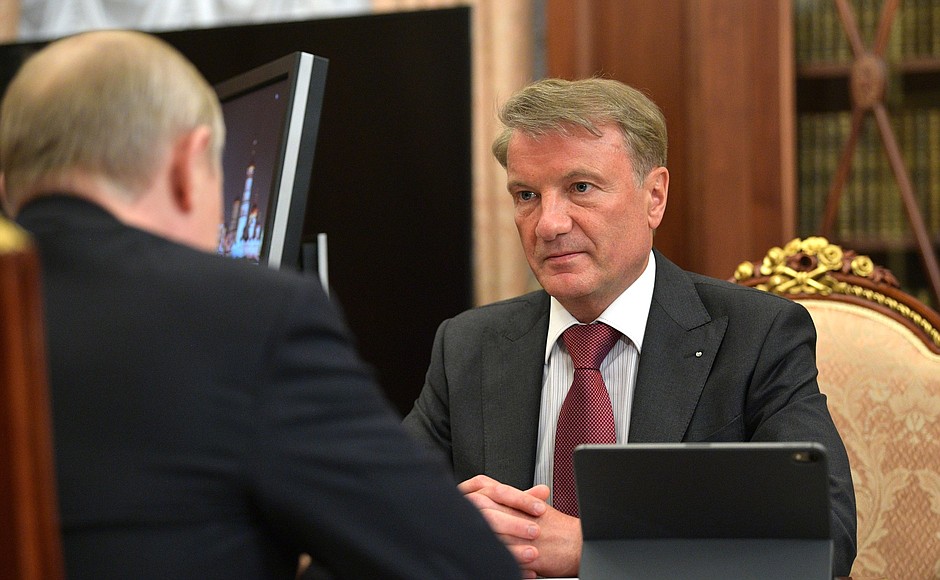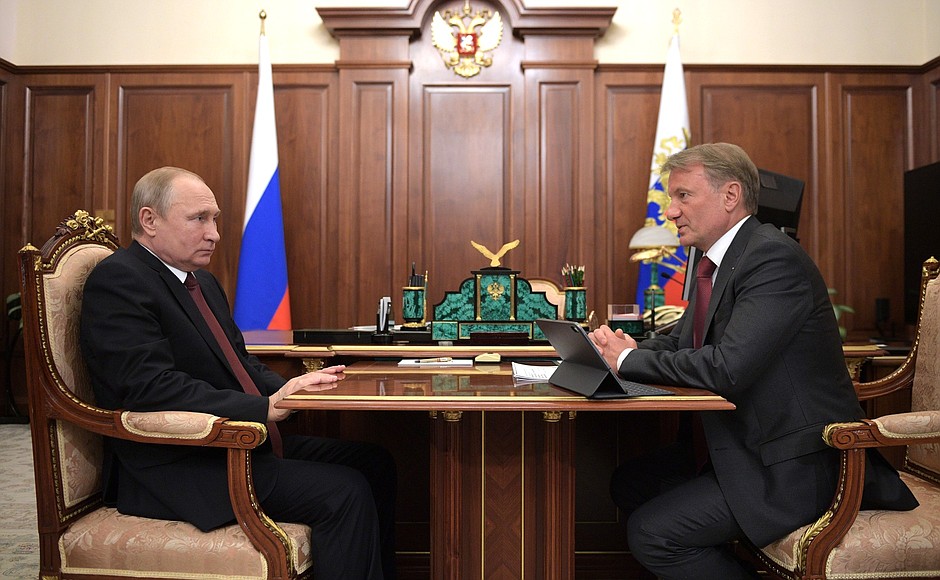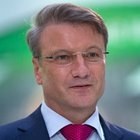There was a special focus on Sberbank operations in the regions, specifically Irkutsk Region, which German Gref visited on September 3. According to Mr Gref, his bank decided to reschedule 535 loans worth a total of 163 million rubles.
Part of the applications from the flood victims will be considered shortly. He also told the President how his bank was replacing lost bankcards and paying out the victim’s insurance claims. The bank was planning to build an infectious diseases unit for the Tulun hospital, he added.
***
President of Russia Vladimir Putin: Good afternoon, Mr Gref. What have you prepared?
Sberbank CEO German Gref: Mr President, I would like to say a few words about our financial performance. In particular, I wanted to show you what has been happening with our contributions to the federal budget over the past ten years. I think this is of importance for us as well as the government.
While in 2009 we paid a total of 59 billion rubles to the budget, in 2019, we will pay 502 billion [rubles] to the federal budget, which includes the taxes and dividends that we pay to the federal budget. We are the biggest taxpayer contributing to the budgets at all levels, primarily regional budgets, after the major natural resources companies. In the overwhelming majority of regions, we pay more taxes than anyone else does; we are the biggest taxpayer in perhaps 60 percent of the regions.
I think that we will soon reach the level of 11.5 percent in terms of capital adequacy and next year we are planning to start 50 percent dividend payments. And these figures are set to grow considerably.
We firmly believe that being one of the country’s biggest companies, we must ensure the stability of budget revenues. Our contributions are used to fund a great number of social institutions and pensions.
Second. Mr President, we signed an agreement in your presence…
Vladimir Putin: Practically all banks have a stable situation in terms of capital now.
German Gref: Yes, capital is growing and the crisis is subsiding. We have always replenished capital from our own profits: we pay out dividends and the rest of the profits are used to replenish the capital. In our estimate, we will be able to pay 50 percent already next year.
The second subject is technologies, of course.
Vladimir Putin: I know you have made good progress here.
German Gref: We have signed a relevant agreement with the Government. You said that a quick start is required and we absolutely agree.
Vladimir Putin: You have started already.
German Gref: Actually, yes, we are trying. We feel that we need to make a great contribution to the reform of the education system and increase the number of universities training specialists.
We are seriously getting involved with schools; we held a competition last year where 50,000 school students took part in its second stage alone, 200 of them competed here in Moscow. This year we had a very good result in the artificial intelligence competition, and all of the winners were from the regions.
It is a clear indication that the regions have begun to deal with this issue in earnest. We have been vigorously promoting this issue in the regions for three years: we developed special programmes, attracted and trained teachers, and now it is becoming an important movement. And children are very quick learners. Remarkably, one of the boys who won a school competition last year, came fifth among adult data scientists and jointly with the Moscow Institute of Physics and Technology we offered him training at the institute’s lyceum. He has moved from Chelyabinsk to Dubna and is studying there.
We can see that artificial intelligence systems have an enormous potential in practically every area: it means higher labour productivity, more transparent and quicker services, including government services. We are making considerable investment in it. Hopefully, in the near future our clients and Russian citizens will feel the results of this work in their everyday lives.
Vladimir Putin: You have done a great deal for the bank and the financial system, so what we need is to adapt what you have done to more large-scale tasks facing the country and certain sectors, as well as state governance. We talked about it many times. What we need is to do it as quickly as possible.
German Gref: Definitely, Mr President.
We have just established two special units: one for regional projects and the other for federal ones.
Vladimir Putin: Good.
<…>



